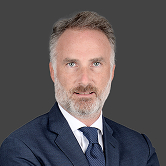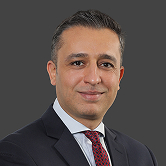The GCC region’s healthcare sector is experiencing increased demand for medical services due to population growth, resulting in a shortage of skilled healthcare professionals across multiple specialties. The region has traditionally relied on expatriates to fill this gap due to a scarcity of nationally trained physicians and nurses. This dependency has financial implications and poses challenges to the long-term sustainability of the healthcare workforce.
The Expatriate-Dependent Workforce
In the UAE, expatriates make up approximately 82% of the physician workforce and 96% of the nursing workforce. Similarly, expatriate healthcare professionals account for around 90% of the private sector workforce in Saudi Arabia. While the GCC has made investments in healthcare infrastructure, the shortage of locally trained professionals could impact its healthcare goals.
As highlighted in Alpen Capital’s latest GCC Healthcare Industry Report, the GCC had an average of 6.5 nurses and 2.5 physicians (including dentists) per 1,000 people as of 2021. While physician density was comparable to some developed nations, the number of nurses remained lower. Addressing this imbalance is important for the region’s healthcare sustainability and quality of service.
Current Healthcare Workforce Trends Across the GCC
The workforce distribution varies across GCC nations, reflecting both progress and ongoing gaps. As of 2021, Saudi Arabia had 4 physicians and 8.5 nurses per 1,000 people, while the UAE reported 3.6 physicians and 6.4 nurses per 1,000 people. Although the physician density is comparable to that of mature healthcare markets such as the UK and the US, the nurse density remains lower, highlighting the growing demand for skilled labor in the industry.
Physicians and Nurses Density in the GCC

Source: Health Ministries of Bahrain, Oman, Qatar and Saudi Arabia, FCSA, CSB, MDPS, IMF, Alpen Capital
Country-wise Physicians and Nurses Density (2021)

Source: Health Ministries of Bahrain, Oman, Qatar and Saudi Arabia, FCSA, CSB, MDPS, IMF, OECD, WHO, Alpen Capital
Addressing the Shortage: Capacity Building and Education Initiatives
The limited number of healthcare education institutions in the region has contributed to the shortage of homegrown professionals. While nursing schools exist, there is a gap in specialized training programs for physicians and allied healthcare professionals. To address this, governments are focusing on:
- Expanding Healthcare Education: Several initiatives have been launched to enhance medical education and professional development. In Saudi Arabia, institutions like King Saud Bin Abdulaziz University for Health Sciences and King Abdulaziz University have expanded their healthcare programs. In the UAE, UK-based universities such as Birmingham Dubai and King’s College are offering specialized courses in medicine and healthcare.
- Leveraging Digital Learning Platforms: Healthvarsity, an online education platform launched by Healthvarsity and Thumbay Group, provides over 200 courses for upskilling healthcare professionals. This AI-driven platform aims to address skill gaps across various medical disciplines.
- Easing Immigration and Work Policies: The UAE’s introduction of the 10-year Golden Visa for doctors, PhD holders, and highly skilled workers is a step towards attracting and retaining top talent. Saudi Arabia is also scaling up training capacities and expanding professional development programs to increase local workforce participation.
The Way Forward
Despite advancements, challenges remain in ensuring adequate healthcare staffing, particularly in mental health services. Alpen Capital’s report states that the number of mental health workers in the GCC is below global standards, with only 2.6 psychiatrists per 100,000 people, compared to 16 per 100,000 in the US.
As the region continues to develop medical cities and hospitals, the demand for skilled professionals is expected to rise. Saudi Arabia alone is estimated to require at least 20,000 additional doctors by 2030. Addressing this gap will require a combination of local talent development and strategies to retain expatriate expertise.
The future of the GCC healthcare sector will depend on a balanced approach that strengthens education systems, fosters innovation, and implements policies that support workforce sustainability. By investing in capacity building and workforce development, the region can enhance its healthcare sector and meet the growing demand for medical services.
 4 min
4 min




